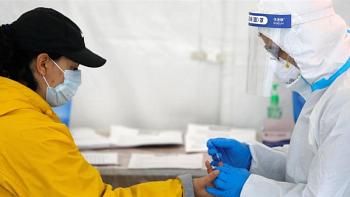WHO warns against coronavirus 'immunity passports'
The United Nations's health agency has warned there is no scientific evidence to prove that people who have recovered from the coronavirus develop immunity against potential infection in the future, as the global death toll from COVID-19 passed 200,000 on Saturday amid 2.8 million infections.
The World Health Organization (WHO) gave the warning as a number of countries consider issuing so-called "immunity passports" to people who have recovered from COVID-19, the disease caused by the coronavirus.
The WHO said such a move could actually increase the transmission of the novel coronavirus as people who have recovered may ignore advice about taking standard precautions against the virus.
"Some governments have suggested that the detection of antibodies to the SARS-CoV-2, the virus that causes COVID-19, could serve as the basis for an 'immunity passport' or 'risk-free certificate' that would enable individuals to travel or to return to work assuming that they are protected against re-infection," the WHO said.
"There is currently no evidence that people who have recovered from COVID-19 and have antibodies are protected from a second infection."
The UN's health agency issued the warning as the coronavirus pandemic reached a grim new milestone as the death toll passed 200,000 worldwide. The United States has seen the highest number of fatalities, with its death toll passing 50,000 earlier this week, while Italy, Spain, France and the UK have all reported death tolls over 20,000.
A number of governments have proposed a gradual return to work, as restrictions imposed on movement to curb the spread of the virus have crippled economies around the world.
Last week, Chile announced plans to give "health passports" to patients who have recovered from COVID-19. Once checked for the presence of antibodies, they would be allowed to go back to work, officials said.
"We understand the intention of trying to see who can go safely back to work or who could be eventually risk-free of infecting other people," WHO spokesman Tarik Jaserevic told Al Jazeera. "But unfortunately, from a scientific point of view, we simply don't know if a person who has been infected by the coronavirus gets this immunity, and if a person gets this immunity, how long it's lasting."





